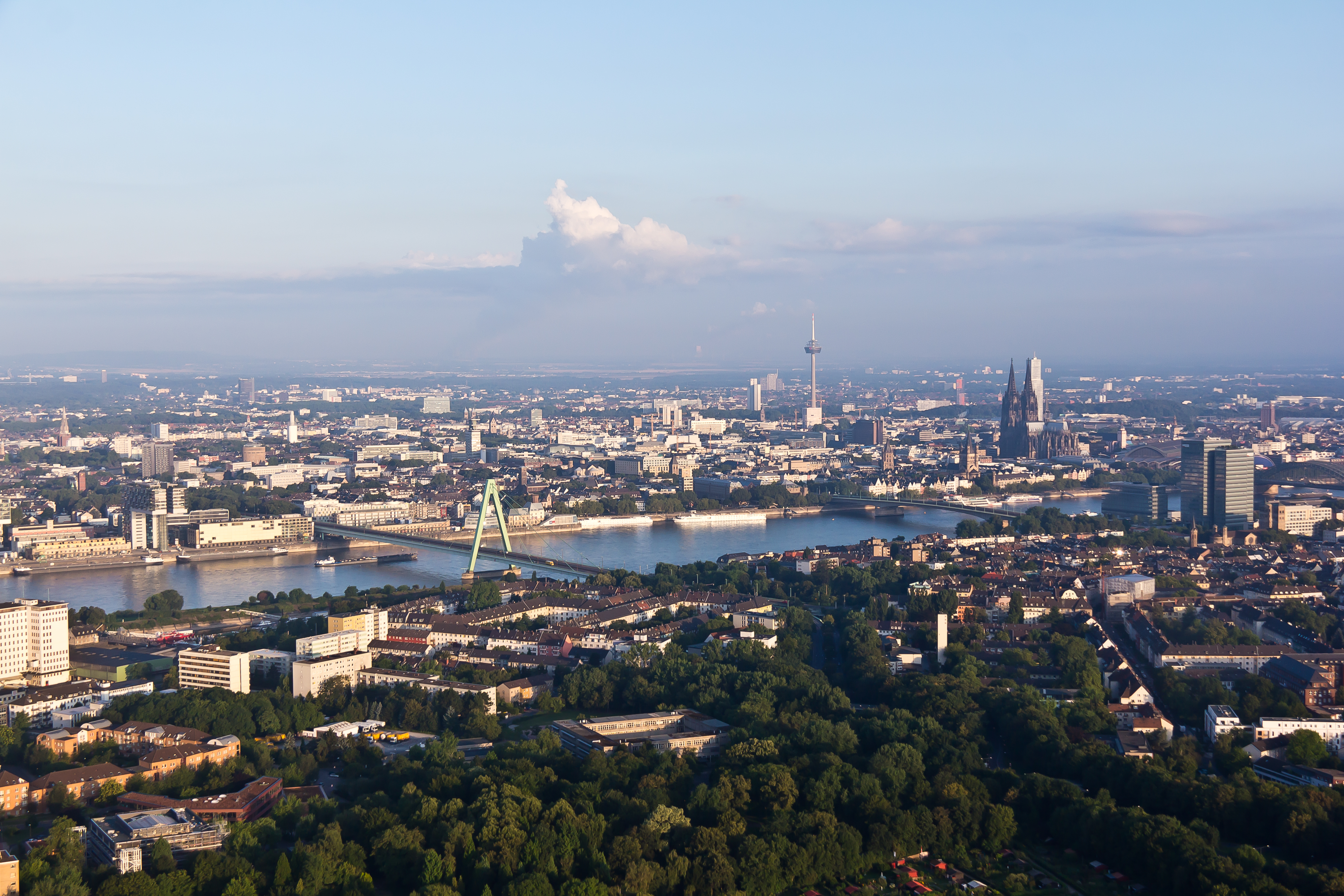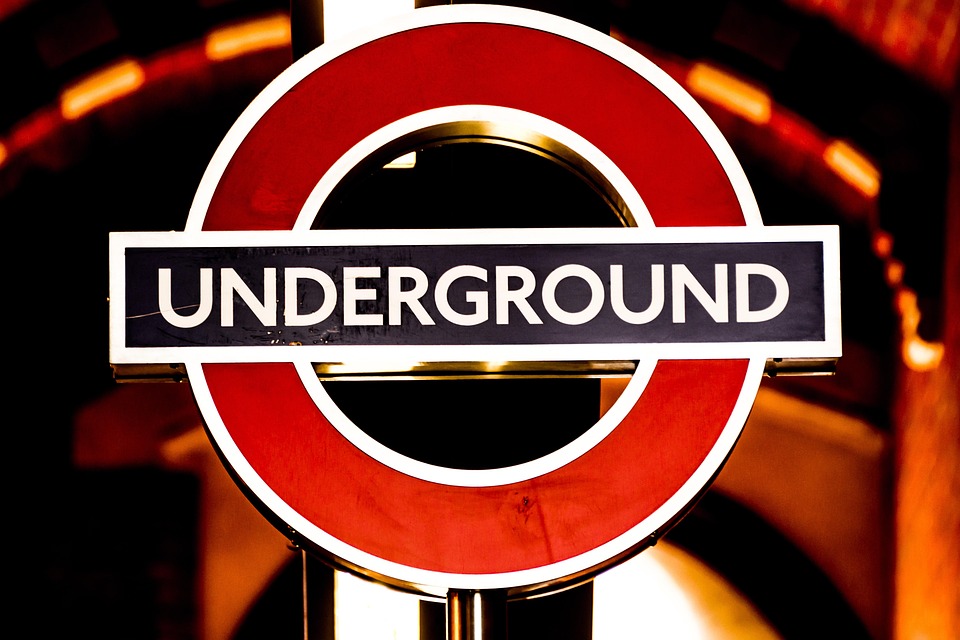Wondering what the most expensive cities in Germany are? The cost of living in Germany is 994.6€ (840.9£) per month without rent, which is quite reasonable compared to some other major European countries. Also, the cost of living in Germany with rent is 21.8% lower than in the United States and 6.4% lower than in the United Kingdom. However, in some of the most expensive cities in Germany, such as Berlin, Frankfurt, Munich, and Hamburg, you need to pay more than 994.6€ per month for living expenses.
List of Richest Cities in Germany
Known for its robust economy and rich history, Germany also features high standard of living and relatively low cost of living. But there are also some major German cities that may cost high with a hefty price tag. Check the following list to get an overview:
| Top 10 Most Expensive Cities in Germany | |||
|---|---|---|---|
| City | Cost of Living Without Rent/Month | Rent for 1B in City Centre/Month | Average Income/Month |
| Berlin | 998.1€ | 1,230.56€ | 2,860.47€ |
| Frankfurt | 1,060.1€ | 1,273.66€ | 3,589.98€ |
| Munich | 1,076.9€ | 1,425.49€ | 3,312.59€ |
| Dusseldorf | 1,018.3€ | 987.73€ | 3,085.81€ |
| Hamburg | 1,058.0€ | 1,125.39€ | 3,195.88€ |
| Stuttgart | 1,000.2€ | 1,115.00€ | 3,275.38€ |
| Nuremberg | 1,013.4€ | 852.90€ | 3,166.67€ |
| Leipzig | 979.0€ | 717.07€ | 2,545.56 € |
| Cologne | 1,081.6€ | 998.68€ | 3,029.93€ |
| Heidelberg | 1,042.7€ | 1,023.33€ | 3,245.89€ |
Most Expensive Cities in Germany: Top 10
This blog listed some of the most wealthiest cities in Germany according to Mercer Cost of Living City Ranking and statistics from Numbeo, providing detailed insights with proof from daily expenses, rental prices, average income, and other essentials.
1. Berlin
As the capital city, Berlin has long been one of the most expensive cities in Germany, along with modern amenities and a rich history. According to the Cost of Living City Ranking 2024 by Mercer, Berlin has surpassed Munich and ranked 31st in the most expensive cities in the world. This might be largely due to the exploding housing prices, and an estimated 75% percent of Berliners pay illegally high rent in 2024.
Cost of Living in Berlin (without rent)
- Average monthly costs for single person: 998.1€
- Groceries: equal to national level
- Transport: 50.00€ for monthly pass
- Utilities: 373.27€ per month
Rent Per Month in Berlin
- 1 bedroom apartment in City Centre: 1,230.56€
- 1 bedroom apartment outside Centre: 906.04€
Average Income in Berlin
- Average Monthly Net Salary (After Tax): 2,860.47€
Life in Berlin
- Quality of Life: High
- Attractions: Brandenburg Gate, Checkpoint Charlie, Museum Island
2. Frankfurt
Frankfurt is a global hub for commerce, culture, and tourism, and is home to many international and European corporate headquarters. It is a city of contrasts, where big business meets diverse culture, and historic amenities meet modern lifestyles, leading to another richest city in Germany.
Cost of Living in Fankfurt (without rent)
- Average monthly costs for single person: 1,060.1€
- Groceries: slightly higher than national level
- Transport: 49.99€ for monthly pass
- Utilities: 390.71€ per month
Rent Per Month in Fankfurt
- 1 bedroom apartment in City Centre: 1,273.66€
- 1 bedroom apartment outside Centre: 939.13€
Average Income in Fankfurt
- Average Monthly Net Salary (After Tax): 3,589.98€
Life in Fankfurt
- Quality of Life: High
- Attractions: Romer, Städel Museum, City Tours, Flea & Street Markets
3. Munich
Munich has long been the most expensive city in Germany for many years. It is not only the capital of Bavaria but also has been a cultural, political, and economic center throughout German history. Nowadays, Munich often stands out for its high quality of life and robust job market.
Cost of Living in Munich (without rent)
- Average monthly costs for single person: 1,076.9€
- Groceries: higher than national level
- Transport: 50.00€ for monthly pass
- Utilities: 399.2€ per month
Rent Per Month in Munich
- 1 bedroom apartment in City Centre: 1,425.49€
- 1 bedroom apartment outside Centre: 1,185.53€
Average Income in Munich
- Average Monthly Net Salary (After Tax): 3,312.59€
Life in Munich
- Quality of Life: High
- Attractions: English Garden, Nymphenburg Palace, Marienplatz, Viktualienmarkt
4. Dusseldorf
Dusseldorf, the country’s fashion capital, is also one of the wealthiest cities in Germany. The city is an international business and financial center famous for fashion and trade fairs. It is also home to the headquarters of one Fortune Global 500 and two DAX companies.
Cost of Living in Dusseldorf (without rent)
- Average monthly costs for single person: 1,018.3€
- Groceries: slightly higher than national level
- Transport: 49.00 € for monthly pass
- Utilities: 365.28€ per month
Rent Per Month in Dusseldorf
- 1 bedroom apartment in City Centre: 987.73€
- 1 bedroom apartment outside Centre: 787.81€
Average Income in Dusseldorf
- Average Monthly Net Salary (After Tax): 3,085.81€
Life in Dusseldorf
- Quality of Life: High
- Attractions: Rhine Tower, Schloss Benrath, Königsallee
5. Hamburg
Hamburg is the second-largest city in Germany after Berlin and the 6th-largest in the European Union, with a population of over 1.9 million. It is also a major port city known for its rich maritime history, unique warehouse district, and Red Light District. Your monthly cost in Hamburg will usually be above 1,000€, contributing to another high cost of living city in Germany.
Cost of Living in Hamburg (without rent)
- Average monthly costs for single person: 1,058.0€
- Groceries: slightly higher than national level
- Transport: 49.00 € for monthly pass
- Utilities: 378.76€ per month
Rent Per Month in Hamburg
- 1 bedroom apartment in City Centre: 1,125.39€
- 1 bedroom apartment outside Centre: 784.82€
Average Income in Hamburg
- Average Monthly Net Salary (After Tax): 3,195.88€
Life in Hamburg
- Quality of Life: High
- Attractions: St. Michael’s Church, Elbphilharmonie Hamburg, Hamburg Townhall
6. Stuttgart
Stuttgart might be the richest city in Germany, with the highest general standard of prosperity of any other city in the country. As the “cradle of the automobile” or Germany’s “Autohauptstadt”, it is home to the famous Mercedes-Benz Museum and Porsche Museum, as well as numerous auto-enthusiast magazines.
Cost of Living in Stuttgart (without rent)
- Average monthly costs for single person: 1,000.2€
- Groceries: slightly higher than national level
- Transport: 50.00 € for monthly pass
- Utilities: 331.88€ per month
Rent Per Month in Stuttgart
- 1 bedroom apartment in City Centre: 1,115.00€
- 1 bedroom apartment outside Centre: 887.00€
Average Income in Stuttgart
- Average Monthly Net Salary (After Tax): 3,275.38€
Life in Stuttgart
- Quality of Life: High
- Attractions: Mercedes-Benz Museum, Porsche Museum, Stuttgart TV Tower, Wilhelma
7. Nuremberg
Nuremberg stands as Germany’s most vibrant museum of history, and also one of the wealthiest cities in Germany. The Imperial Castle, built around 1140, is still dominating the city’s skyline. Also, it is one of the few places you can still see architectural relics of National Socialism of the 1930s.
Cost of Living in Nuremberg (without rent)
- Average monthly costs for single person: 1,013.4€
- Groceries: slightly higher than national level
- Transport: 49.00 € for monthly pass
- Utilities: 375.26€ per month
Rent Per Month in Nuremberg
- 1 bedroom apartment in City Centre: 852.90€
- 1 bedroom apartment outside Centre: 646.58€
Average Income in Nuremberg
- Average Monthly Net Salary (After Tax): 3,166.67€
Life in Nuremberg
- Quality of Life: High
- Attractions: Imperial Castle, St. Lorenz Church, Nazi Trial grounds
8. Leipzig
Leipzig is the 8th-largest city in Germany and has been a trade city since the time of the Holy Roman Empire. Today, this beautiful old town is still a major urban center in East Germany and is also famous for being a music hub. Living in Leipzig can also be costly as the is also often listes as a rich city in Germany.
Cost of Living in Leipzig (without rent)
- Average monthly costs for single person: 979.0€
- Groceries: equal to national level
- Transport: 49.50 € for monthly pass
- Utilities: 348.97€ per month
Rent Per Month in Leipzig
- 1 bedroom apartment in City Centre: 717.07€
- 1 bedroom apartment outside Centre: 510.71€
Average Income in Leipzig
- Average Monthly Net Salary (After Tax): 2,545.56 €
Life in Leipzig
- Quality of Life: High
- Attractions: St. Thomas Church, St. Nicholas Church, Monument to the Battle of the Nations
9. Cologne (Koln)
As the 4th-most populous city in the country, Cologne also stands as one of the most expensive in Germany. Its majestic cathedral is not only the iconic landmark of the city but also one of the most Gothic cathedrals in the world.
Cost of Living in Cologne (without rent)
- Average monthly costs for single person: 1,081.6€
- Groceries: equal to national level
- Transport: 49.00 € for monthly pass
- Utilities: 450.04€ per month
Rent Per Month in Cologne
- 1 bedroom apartment in City Centre: 998.68€
- 1 bedroom apartment outside Centre: 782.94€
Average Income in Cologne
- Average Monthly Net Salary (After Tax): 3,029.93€
Life in Cologne
- Quality of Life: High
- Attractions: Cologne Cathedral, Museum Ludwig, Lindt Chocolate Museum
10. Heidelberg
As one of the wealthiest cities in Germany, Heidelberg is also one of the most beautiful ones. The Heidelberg University, founded in 1386, is the oldest university in Germany and one of the strongest ones for research in Europe.
Cost of Living in Heidelberg (without rent)
- Average monthly costs for single person: 1,042.7€
- Groceries: equal to national level
- Transport: 49.00€ for monthly pass
- Utilities: 351.56€ per month
Rent Per Month in Heidelberg
- 1 bedroom apartment in City Centre: 1,023.33€
- 1 bedroom apartment outside Centre: 740.91€
Average Income in Heidelberg
- Average Monthly Net Salary (After Tax): 3,245.89€
Life in Heidelberg
- Quality of Life: High
- Attractions: Heidelberg Castle, Old Bridge Heidelberg, Heiliggeistkirche
Tips for Living in Most Expensive Cities in Germany
If you’re an incoming student with a limited budget, we have prepared some tips for you to live a good life in these rich cities in Germany:
- Find a cost-effective student accommodation in Germany. Spend more time searching and comparing, and you can also consider living with friends to save on rent. Come to your reliable partner, uhomes.com, to find the ideal home away from home.
- Cook rather than eat out. Although there are many popular restaurants, the cost might also be high. Buying groceries and cooking together with your roommates will help you save a lot of money.
- Use your student discounts. There will be discounts for students on attractions, public transport, and more; remember to check before paying.
- Plan your budget in advance. It is a good way to manage your life expenses once you have set the amount at the beginning of every month.
Cheapest cities in Germany
Although there are some expensive cities, Germany is generally considered affordable with reasonable national average cost of living. If you’re seeking a cheap city to live in Germany, check the following ones:
- Bielefeld: Cost of living including rent is 20.3% lower than in Berlin
- Halle: 869.6€ for single person one month without rent
- Magdeburg: Rent Prices are 47.5% lower than in Berlin
- Potsdam: Rent Prices are 23.1% lower than in Berlin
- Erfurt: Cost of Living Including Rent in Erfurt is 17.8% lower than in Berlin
Conclusion
After looking into the listed most expensive cities in Germany, it is not hard to find that Germany is still much more affordable than the United Kingdom and the United States. Along with a robust economy, rich culture, profound history, and prime universities, Germany is also a popular destination for people to move in or for students to pursue higher education.
FAQ
What is the most expensive city in Germany?
Munich has long been Germany’s most expensive city, with high rent prices and living costs. According to the 2023 “Housing Cost Index” by Numbeo, Munich ranks as the priciest for rent and living expenses, surpassing cities like Frankfurt and Berlin. The city’s strong economy and demand drive these costs.
What is the richest area in Germany?
The richest area in Germany is Baden-Baden, located in the state of Baden-Württemberg. Known for its luxury spas, casinos, and affluent residents, it boasts high real estate prices. According to Forbes and various real estate reports, Baden-Baden consistently ranks among the wealthiest cities in Germany by income and property value.
Which is the cheapest city in Germany?
The cheapest city in Germany is Chemnitz, located in Saxony. According to Numbeo’s 2023 data, Chemnitz has the lowest rent and living costs among major German cities. Housing is affordable, and daily expenses like groceries and transportation are significantly cheaper compared to cities like Munich or Hamburg.
Which German city has highest salary?
The German city with the highest average salary is Munich. According to the 2023 “Salary and Living Costs” report by StepStone, Munich offers the highest salaries due to its strong economy, with major industries such as finance, technology, and automotive. Workers in Munich earn more than in most other cities.
Which German city has the highest rent?
The German city with the highest rent is Munich. According to the 2023 “Housing Cost Index” by Numbeo, Munich has the highest average rent in Germany, especially for apartments in central areas. The city’s demand for housing, combined with its strong economy, drives these elevated rent prices.
What are the richest cities in Germany?
Germany’s wealthiest cities by GDP per capita are concentrated in the south. Wolfsburg leads (€180,000+), driven by Volkswagen’s headquarters. Munich follows (€110,000), buoyed by tech, finance, and industry giants like BMW and Siemens. Frankfurt (€98,000) thrives as a financial hub, while Stuttgart (€82,000) leverages automotive (Mercedes-Benz, Porsche) and engineering. Düsseldorf (€70,000) excels in luxury, trade fairs, and services. Southern states like Bavaria and Baden-Württemberg dominate due to high-value industries and corporate HQs.
What is the poorest city in Germany?
Gelsenkirchen, in the industrial Ruhr region, is frequently cited as Germany’s poorest city. Its GDP per capita (around €16,500) ranks lowest nationally, reflecting decades of decline in coal and steel industries. High unemployment (over 10%) and poverty rates persist despite revitalization efforts. Alternative metrics highlight Bremerhaven (high welfare dependency) and parts of Eastern Germany (e.g., Görlitz), where demographic shifts and lower wages exacerbate economic challenges.
Is Munich more expensive than Frankfurt?
Yes, Munich is generally more expensive than Frankfurt, particularly for housing. In 2025, the rent in Munich averages averages €24/m² and in Frankfurt €18/m². The overall costs in Munich is about 15% pricer according to Numbeo. Frankfurt’s public transport and dining are slightly cheaper, but Munich’s property market and leisure activities drive its higher cost of living. Both rank among Germany’s top 5 most expensive cities.







